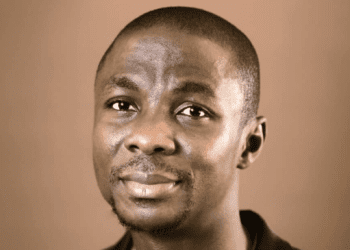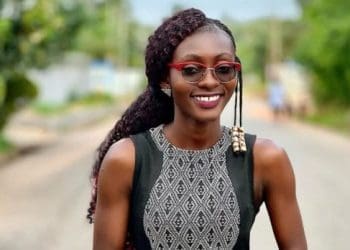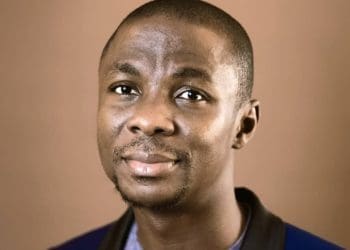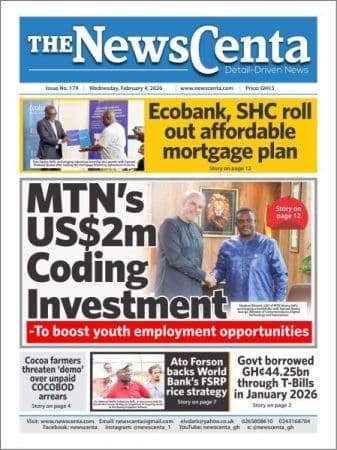A tribute to the journeys, culture, and pride of African Liberians, highlighting their stories, struggles, and moment of victory.
You expect the president of your country to speak excellently, at least better than most of us. When we call them ‘Your Excellency,’ it is a demand for performance, and not a salutation. We are besotted with their rhetorical brilliance and oratorical fireworks when they rise to speak, especially if they can pitch it like Barack Obama or enunciate like Martin Luther King.
Even where they falter and flounder, we do not expect anybody to query the English of a president or compliment them for speaking well, except when President Donald Trump is the one marking the scripts.
Such good English
English 101 is for learners, not for presidents.
That was the expectation of the people of Liberia until last month when their leader, President Boakai, met President Trump at the White House with four other African presidents for a three-day summit.
After what seemed like an impeccable delivery by the Liberian leader, his host, an obviously impressed Trump, praised: “Such good English; such beautiful…Where did you learn to speak so beautifully? Where were you educated?”
With great composure and diplomatic poise, the Liberian President calmly answered: “In Liberia, Sir”. Trump replies: “That’s very interesting; that’s beautiful English. I have people at this table who can’t speak nearly as clearly”.
President Boakai smiled through the English test, probably imagining one of his late evening conversations with his granddaughter at the Liberian Presidency.
The president can hear himself commending his granddaughter’s big score in English comprehension: “Well done, I will buy you ice cream and take you to Disneyland if you are able to maintain this grade. You got 95%. Such good English.”
Thankfully, President Boakai did not fly to the White House with his granddaughter.
Here was an 80-year-old president from an English-speaking independent African country answering questions about English pronunciation and tenses before his Caucasian American host.
At the same event, President Trump was reported to have impatiently and abruptly cut in when the Mauritanian President, Mohammed Guzwani, started to make his pitch.
He spoke French, which was translated.
American exceptionalism
President Trump was not able to hide his disinterest. He turned his gaze from the Mauritanian leader, twiddled and fingerpicked like an offbeat guitarist: “We have to go. Maybe we have to go a little bit quicker than this because we have a whole schedule.” Like Boakai, the Mauritanian President may have imagined himself in a classroom during his elementary school days, when his Biology teacher asked him to shut up and sit down after giving the wrong answer while his mates booed.
This is every African’s Liberia moment. It is the new world order, and it is pretty much like the old world order.
Beyond the obvious condescension and President Trump’s suspicion about black Africans, developing countries should look themselves in a giant mirror and ask some serious questions. We may be used to President Trump’s excesses, dark humour, and freethinking diplomacy.
We also know the thinking behind American Exceptionalism and how much space the world is prepared to give Africa at the table of civilised conversation. But there is more.
Why did President Trump find President Boakai’s English beautiful?
The Liberian leader studied at Kansas State University in the USA and at the University of Liberia.
His enunciations carry bits of the slurring American accent.
Americans love you when you speak with an American accent. The Liberian President’s experience with Mr Trump replays Carter Woodson’s prognosis in ‘The Mis-Education of the Negro’.
He argues that black people were culturally indoctrinated in the American school and not properly educated.
This miseducation has stifled the rise of the black person. Invariably, we have allowed other people to pronounce judgment on things we have perfected.
We seek validation and affirmation from elsewhere.
Local intelligence
Every African abroad has experienced their Liberian moment at one point. It is that awful moment when you are weighed on the scales of civilisation and dismissed or ignored.
It is that moment when you are asked to repeat a statement because your African accent got in the way.
Indeed, we have been asked whether a degree from Africa meets international accreditation standards.
The Liberian moment also shows up when your byline is overlooked because the report you wrote was so brilliant it couldn’t have been written by you.
For some, your Liberian moment came when your neighbours started selling their houses because you bought a house in their neighbourhood. They may have said hello, but they can’t live close to you.
At the workplace, your Liberian moment was tested when you were inconveniently ditched when your promotion was overdue. For the tenured professor, your Liberian moment shows in student reviews and faculty gossip.
The next level of leadership was deemed too strategic for somebody with an accent.
Affirmative Action was never meant to carry you too far; it was just designed for inclusion. For diversity.
President Boakai may have shattered doubts at the White House by speaking brilliantly, but he may have also challenged Africans to value what we have.
For the people of Liberia, the hashtag ‘#Liberia, Sir’ has become the new vibe on social media and on the streets.
Beyond the joke, however, the hashtag must provoke a new thinking that everything is possible in Liberia.
Maybe, the next time they meet, President Boakai will be the English teacher, and he might teach Mr Trump a thing or two about Liberian English and the correct pronunciation of ‘China’.
Kwesi Tawiah-Benjamin
Tissues Of The Issues
bigfrontiers@gmail.com
Ottawa, Canada














